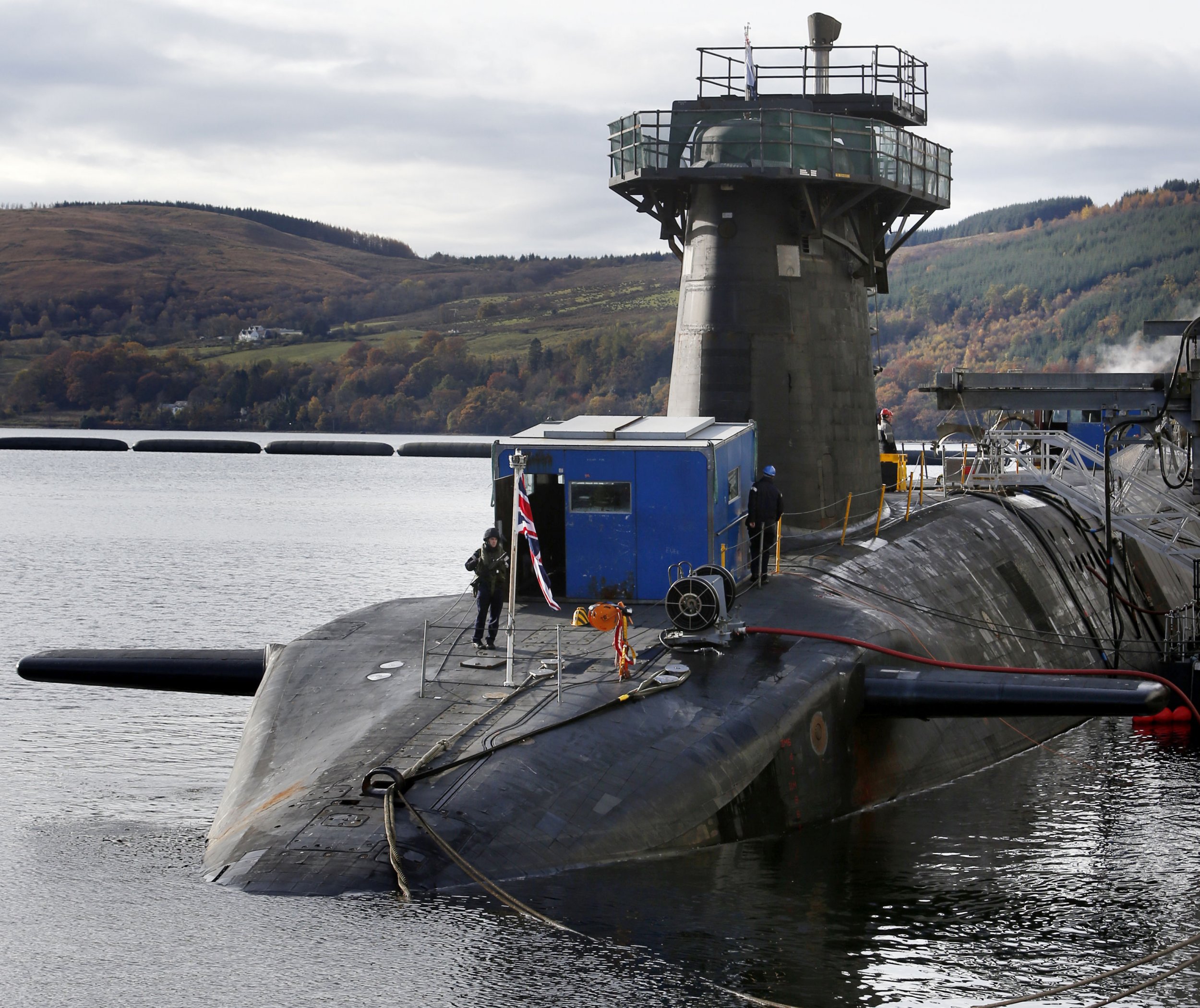
(Reuters) - The Scottish government's plan to evict Britain's nuclear submarine base if it wins a vote for independence would cost billions of pounds, cut thousands of jobs and create resentment internationally, former defense chiefs said on Monday.
The Scottish National Party, which runs Scotland's devolved parliament, has vowed to remove and ban all nuclear weapons in the first parliament of independence, that would start in 2016 if Scotland votes Yes at a September 18 referendum.
But the former top brass said the proposed timescale would create "huge practical problems" over the cost and jobs lost and such a stance would be "unacceptable" to NATO allies.
The concerns raised by four former chiefs of defense staff, six former first sea lords, a former chief of the general staff, and a former chief of the air staff, come after a narrowing in opinion polls this year, which have made independence seem a possibility even though nationalists still lag in support.
"Were the Scottish people to vote for independence, then Scotland, as a new small nation in an uncertain world, would need international partners to help secure its economic and social objectives and allies to provide national security," their letter to Scottish First Minister Alex Salmond said.
"NATO, as an alliance with nuclear deterrence as a central part of its strategic concept, could hardly be expected to welcome a new member state whose government put in jeopardy the continued operation of the UK independent nuclear deterrent - a deterrent which protects not only the UK but all of NATO as well."
Scotland is home to four submarines armed with Trident nuclear warheads at the Faslane naval base on the Clyde River which employs about 7,000 people. One of the submarines is always on patrol, giving a continuous at-sea presence.
It wants to seek NATO membership as a non-nuclear state if it becomes independent, ending a 307-year tie to England.
The future of the nuclear submarines are seen by many as one of Scotland's main bargaining chips in getting what it wants in the 18 months of negotiations that would follow any Yes vote in September in working out how it leaves the United Kingdom.
Last month an unnamed UK minister was quoted as suggesting that the refusal by the main UK parties to share the pound with an independent Scotland could be resolved if Scotland was flexible on Trident.
Defence Secretary Philip Hammond said nothing could be ruled out if the two countries did have to negotiate a split.
But Salmond is adamant that nuclear weapons will not be on the negotiating table.
He was cheered at a party conference two days ago when he gave a guarantee that a Yes vote would lead to the removal of "weapons of mass destruction" from Scotland "once and for all".
Uncommon Knowledge
Newsweek is committed to challenging conventional wisdom and finding connections in the search for common ground.
Newsweek is committed to challenging conventional wisdom and finding connections in the search for common ground.





